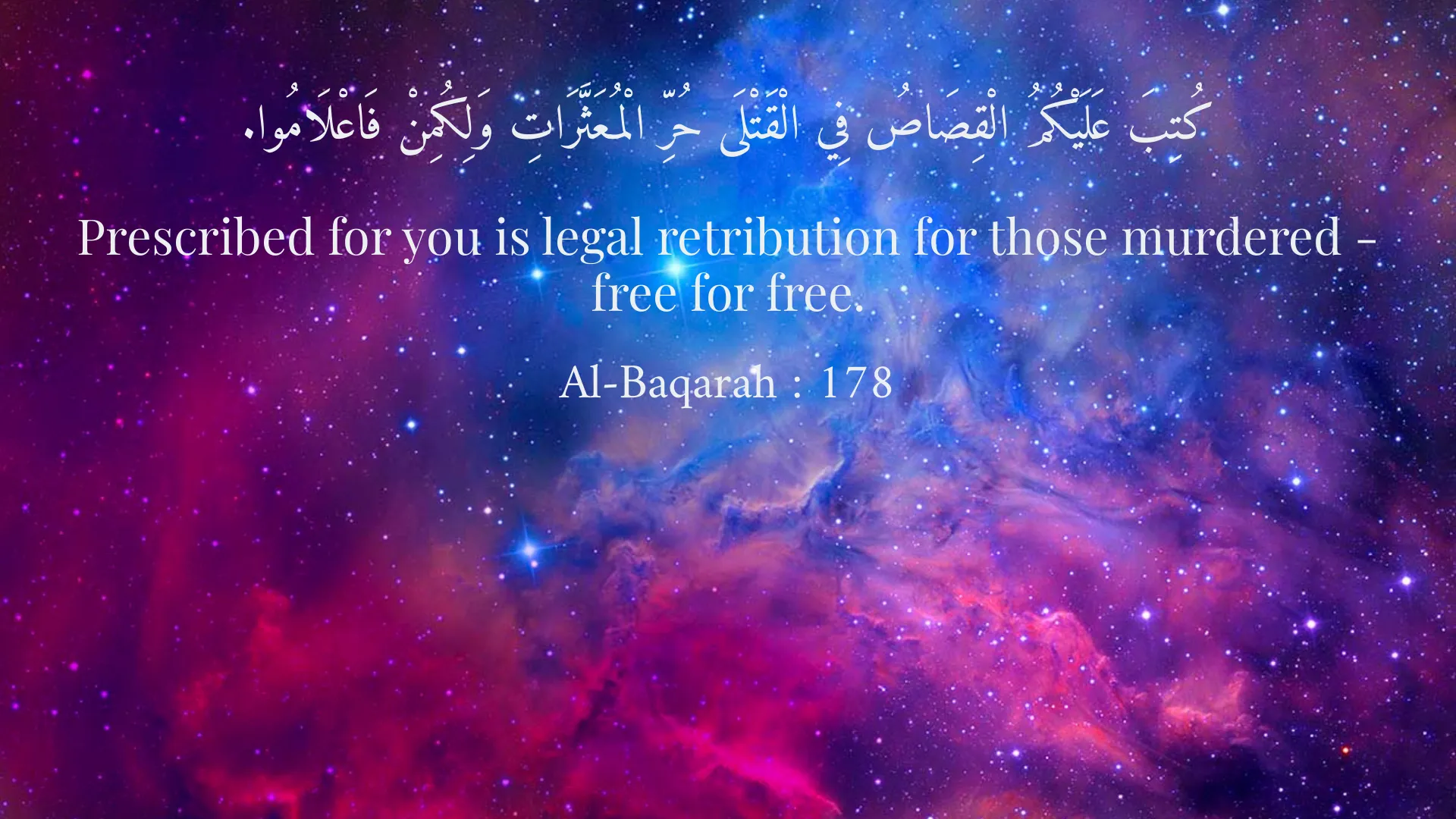Quranic Answer

The concept of forgiveness is a profound and multi-faceted theme found within the pages of the Holy Quran, serving as an essential cornerstone of Islamic teaching and ethics. The Islamic perspective on forgiveness extends beyond mere human interactions and encompasses the divine relationship between God and His servants. In Islam, forgiveness is considered a virtue and a reflection of God's attributes, yet it is uniquely nuanced in its application. This paper aims to elaborate on the significance of forgiveness as presented in the Quran, exploring its implications for both inter-human relationships and societal justice. Forgiveness is deeply rooted in Islamic tradition and believed to be a path to spiritual elevation. The Quran frequently addresses the idea of forgiveness, highlighting its importance in maintaining harmony in human relationships. However, it is crucial to understand that forgiveness is not an absolute command; rather, it is a voluntary act that must consider the context and circumstances surrounding the offense. To comprehend the place of forgiveness within Islamic teachings, one must first consider the attributes of God as described in the Quran. God is often referred to as "Al-Ghafoor" (The Most Forgiving) and "Ar-Raheem" (The Most Merciful), which signifies His boundless capacity for forgiveness. Verses reveal that God forgives those who sincerely repent, recognizing their human fallibility and seeking His mercy. For instance, in Surah Az-Zumar, verse 53, it states, "O My servants who have believed, fear your Lord. For those who do good in this world is good, and the earth of Allah is spacious. Indeed, the patient will be given their reward without account." This illustrates that while God encourages His believers to seek forgiveness, He also emphasizes that goodness, patience, and justice are vital components of faith. The Quran also provides a framework for understanding forgiveness in human interactions. In Surah Al-Baqarah, verse 178, it presents a legal structure concerning retribution, declaring, "O you who have believed, prescribed for you is legal retribution for those murdered: the free for the free, the slave for the slave, and the female for the female. But whoever overlooks from his brother anything, then there should be a suitable follow-up and payment in fairness." This verse is integral to the study of forgiveness in Islam, as it establishes the importance of justice and balance. Thus, while forgiveness is a noble endeavor, it takes second place when the rights of individuals or communities are at stake. Moreover, verses emphasizing punishment also convey a significant message regarding the sanctity of life and the significance of justice. In Surah Al-Maida, verse 32, it states, "Whoever kills a soul unless for a soul or for corruption [done] in the land - it is as if he had slain mankind entirely." The emphasis here is on justice being an expression of respect for human value, indicating that to condone wrongful acts without addressing the violation is to undermine the very fabric of humanity. Further complicating the conversation about forgiveness is the notion of restorative justice. While the Quran acknowledges the merit of forgiveness, it also strongly advocates for justice and restoration. In situations where reconciliation is possible, it is encouraged; however, the context of wrongdoing is paramount. In cases where forgiveness is offered without addressing harm or violation, it could lead to a perpetuation of injustice and disunity within the community. Aside from scriptural sources, the teachings of Prophet Muhammad (peace be upon him) further illuminate the virtue of forgiveness. The Prophet embodied the principle of forgiveness in his life, often forgiving those who wronged him while simultaneously upholding justice for the oppressed. This dualism creates a model for Muslims to emulate, navigating the delicate balance between mercy and accountability to foster a just society. In modern applications, the principle of forgiveness continues to resonate in society. Many contemporary issues illustrate the complexities surrounding forgiveness and justice, whether in personal grievances or societal injustices. Instances of forgiveness can promote healing and restoration, yet the community must also address systemic violations proactively. When considering historical grievances, such as the lingering effects of colonialism, the discourse on forgiveness must recognize the need for justice as an integral part of societal healing. In light of this, forgiveness should always be coupled with the greater goal of ensuring justice and repairing relationships. Thus, the Quran offers an essential perspective on the moral obligations of individuals concerning forgiveness, advocating that it is not merely about relinquishing the desire for revenge but also about fostering healthy relationships built on respect and accountability. In conclusion, the approach to forgiveness in the Quran is reflective of a broader ethical paradigm within Islam. While forgiveness is a valued virtue, it must be configured alongside justice and the protection of human rights. Muslims are called to embody compassion and mercy, yet these principles do not obfuscate the importance of addressing wrongs and striving for justice. By integrating forgiveness with accountability, we can foster more harmonious relationships and a society reflective of divine attributes. The Quran masterfully compels believers to find strength in both forgiveness and justice, guiding humanity toward a better understanding of interpersonal and societal harmony.
Related Verses
كُتِبَ عَلَيْكُمُ الْقِصَاصُ فِي الْقَتْلَى حُرِّ الْمُعَثَّرَاتِ وَلِكُمِنْ فَاعْلَامُوا.
Prescribed for you is legal retribution for those murdered - free for free.
Al-Baqarah : 178
مَن قَتَلَ نَفْسًا فَكَأَنَّمَا قَتَلَ النَّاسَ جَمِيعًا.
Whoever kills a soul unless for a soul is as if he had slain mankind entirely.
Al-Maida : 32
Short Story
One day, a man named Ali decided to think more about God. He vowed to himself to always strive to forgive others. However, when a friend betrayed him, Ali wondered whether forgiveness was always the right choice. He followed the teachings of the Quran and realized that it was essential to look at the issue from both a perspective of comfort and justice. In the end, Ali found a way to reconcile and seek justice regarding his friend, considering the circumstances and the full understanding of the Quran's teachings.